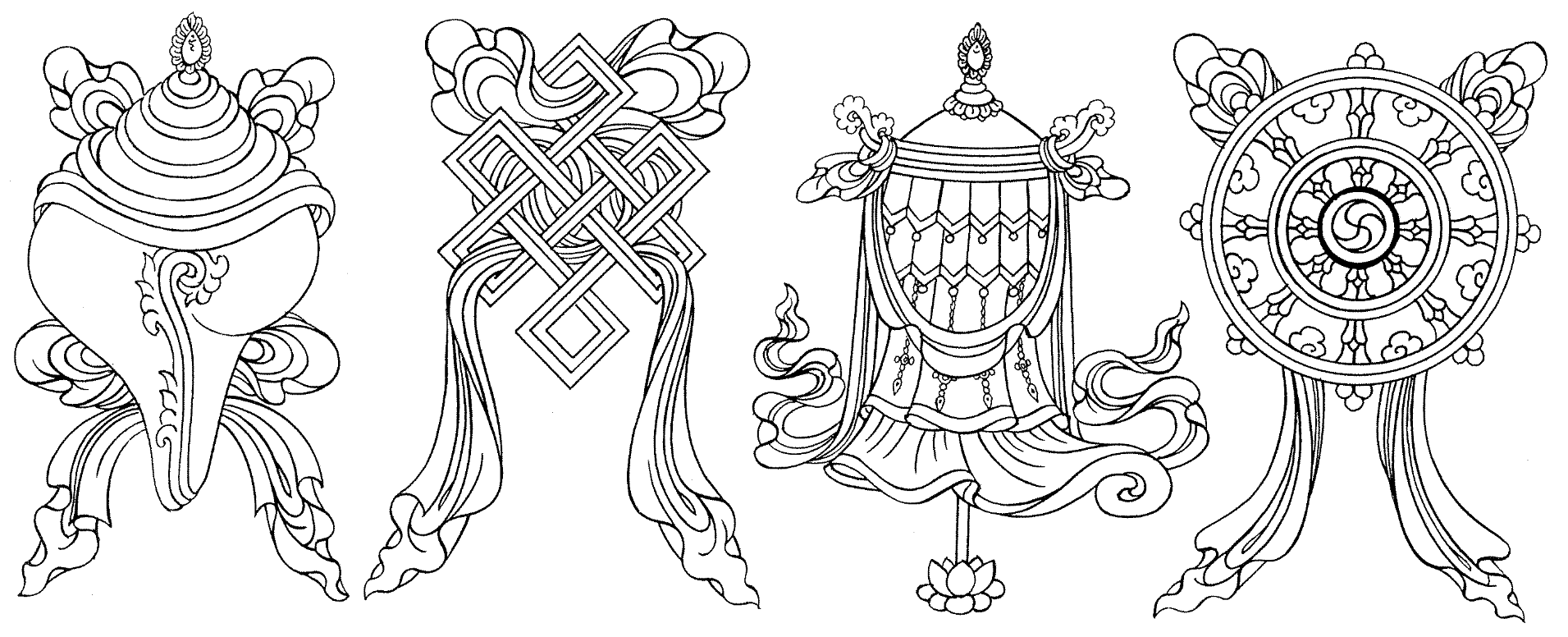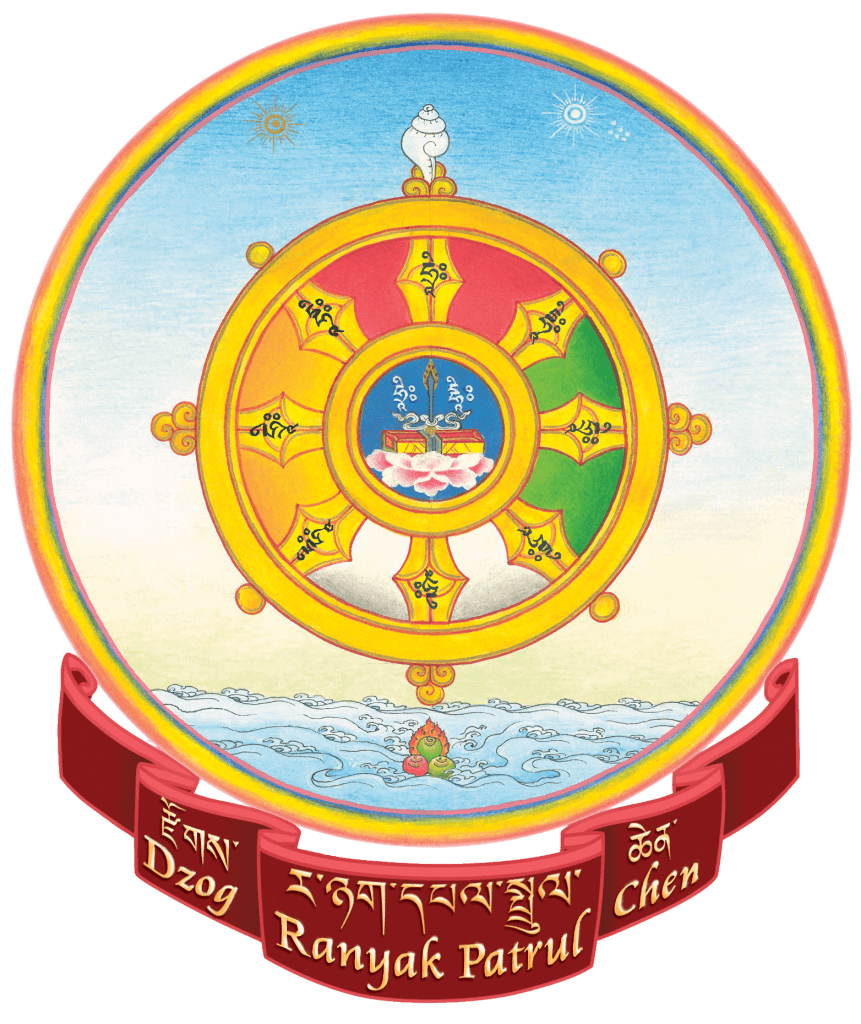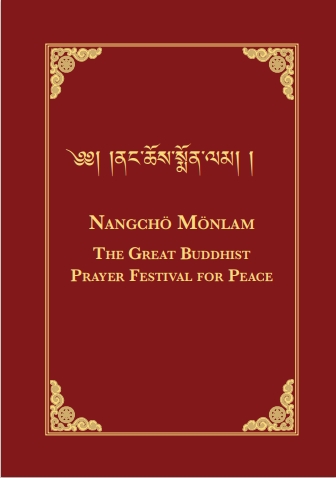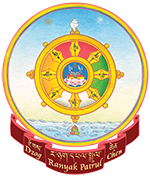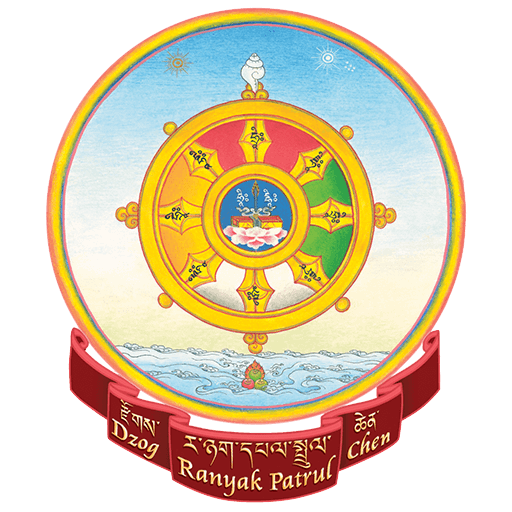A Mönlam is a Buddhist festival, a great gathering to recite prayers of aspirations for peace and well-being all over the world.
The tradition comes from Asia and has been introduced to Europe only recently.
Thanks to Patrul Rinpoche’s initiative, the Nangchö Mönlam will take place every year in Dharma City, Belgium, gathering Tibetans and and practitioners of all other nations for powerful prayers and joyful celebration.
Nangchö Mönlam 2024
will be a 5 days celebration
12 – 16 July 2024
The registration is open.
REGISTRATION
Planning on attending the Monlam in person?
To participate on this year’s Monlam please register on the link below
Need a place to stay during Monlam?
If you plan on participating the Monlam in person and would like to stay in Dharma city during this great occasion, don’t forget to register for accommodation using the link below
Want to participate online?
Don’t forget to register to receive the links and all the necessary info to follow Monlam from home
PRACTICAL INFO
What to bring
- a cushion to sit in the temple (a few chairs will be available as well)
- the instruments for Chöd practice if you have
- if you sleep on site, a torch may be useful
- if you camp: all your camping material (including your tent, mattress, sleeping bag, etc)
- If you sleep in the tents in the attic dormitory: your bedsheets, pillow, and blanket
Rules during the Nangchö Mönlam
- ALCOHOL is only allowed in small amounts, which means in moderation.
- SMOKING is only allowed in the designated smoking area. Drugs are strictly prohibited.
- If any item belonging to the centre is damaged or broken, please replace it whenever possible. In any case, please inform the Secretary.
- Candles and incense are only allowed in the temple in designated areas. They are forbidden anywhere else (in rooms, outside, etc.).
- DO NOT MAKE NOISE. Since there are permanent practitioners as well as hotel guests in Dharma City, do not speak loudly in the courtyard between 10pm and 8am.
- MIND THE TRAFFIC. Please stay away from the highway. Please do not go near the road unless you have a good reason to do so. Parents are especially requested to keep a close eye on their children.
- SWIMMING POOL. You can only use the swimming pool at the opening hours. It is forbidden to use the swimming pool any other time. Children cannot be left unattended and parents or supervisors are responsible for the safety of the children. Note that you use the swimming pool at your own risk. We do not provide life guards.
- INSURANCE ISSUES. Once in Dharma City, individuals and groups must take full responsibility for themselves at all times for any situation or problems, large or small, in and out of Dharma City. The DGPL asbl takes no responsibility.
- ENTRANCE GATE RULES. The gate to the parking lot is closed between 11pm and 8am. If you need to leave early in the morning, please park your car in front of the building.
The Administrators Dzogchen Gelek Palbar Ling (DGPL) asbl.
Secretary: info@patrulrinpoche.net +32 493 94 95 02
SCHEDULE
COST
Patrul Rinpoche has expressed the wish that the mönlam be a donation-based annual event.
It means that participation is free of charge for participants, and that all costs are covered through donations.
You are most welcome to make a donation, general or specific, according to your possibilities and wishes.
It is also a wonderful way for those who cannot join to connect to the positive energy of the mönlams.
DONATION
With the help of donors like you, the Buddhist Prayer Festival for Peace will flourish for the benefit of all. Donations of any amount are appreciated and will help further the Mönlam tradition.
If you want to donate online you can fill in the form.
Information about bank accounts to use can be found here.
TEXTS
A printed version of the texts will be available during the mönlam.
You can also download the text.
MONLAM RECITATION BOOKLET
MANTRAS FOR PRAYERS ON REQUEST
TSOK – RIGDZIN DUPA
REQUEST FOR PRAYERS
During the Monlam, you can ask the Sangha to pray for the fulfilment of specific positive wishes for yourself or for people with whom you are connected. And to make the prayers more effective, we ask that you connect with the Sangha through any amount of donation. Also, as we anticipate many private requests, please try to state your wishes succinctly (300 characters or less) or choose from ready-made options. We appreciate your support and understanding. You can send your request through the
MONLAM PRAYER REQUEST FORM
MEALS
During the course, vegetarian meals and drinks (cold and warm) will be given freely to participants who registered.
Meals will only be offered on
- dinner on 11 July (the day before the mönlam starts)
- breakfast, lunch and dinner 12-16 July (during mönlam)
- breakfast on 17 July (the day after mönlam ends)
See our Donation section if you would like to offer meals or tea in the temple.
—
We are sorry that we cannot guarantee gluten-free and other allergies-free options.
The Dharma City Tea House & Restaurant and the organic shop will be open during the Mönlam (where you will find vegetarian meals and food suitable to specific diets). Reservations are recommended.
VOLUNTEERS
We will need several people to help during the mönlams. Depending on the task you will be able or not to attend the mönlams (for the tasks that need to be done during the recitation time, a few volunteers will take turns so that everyone can attend at least partially).
If you are interested to help, please send an email here.
ONLINE
You can follow the Nangchö Mönlam online via teams link.
The Nangchö Mönlam ནང་ཆོས་སྨོན་ལམ།
—the Buddhist Prayer Festival for Peace—
is organised under the auspices of Patrul Rinpoche
and takes place every year in summer in Dharma City, Belgium.
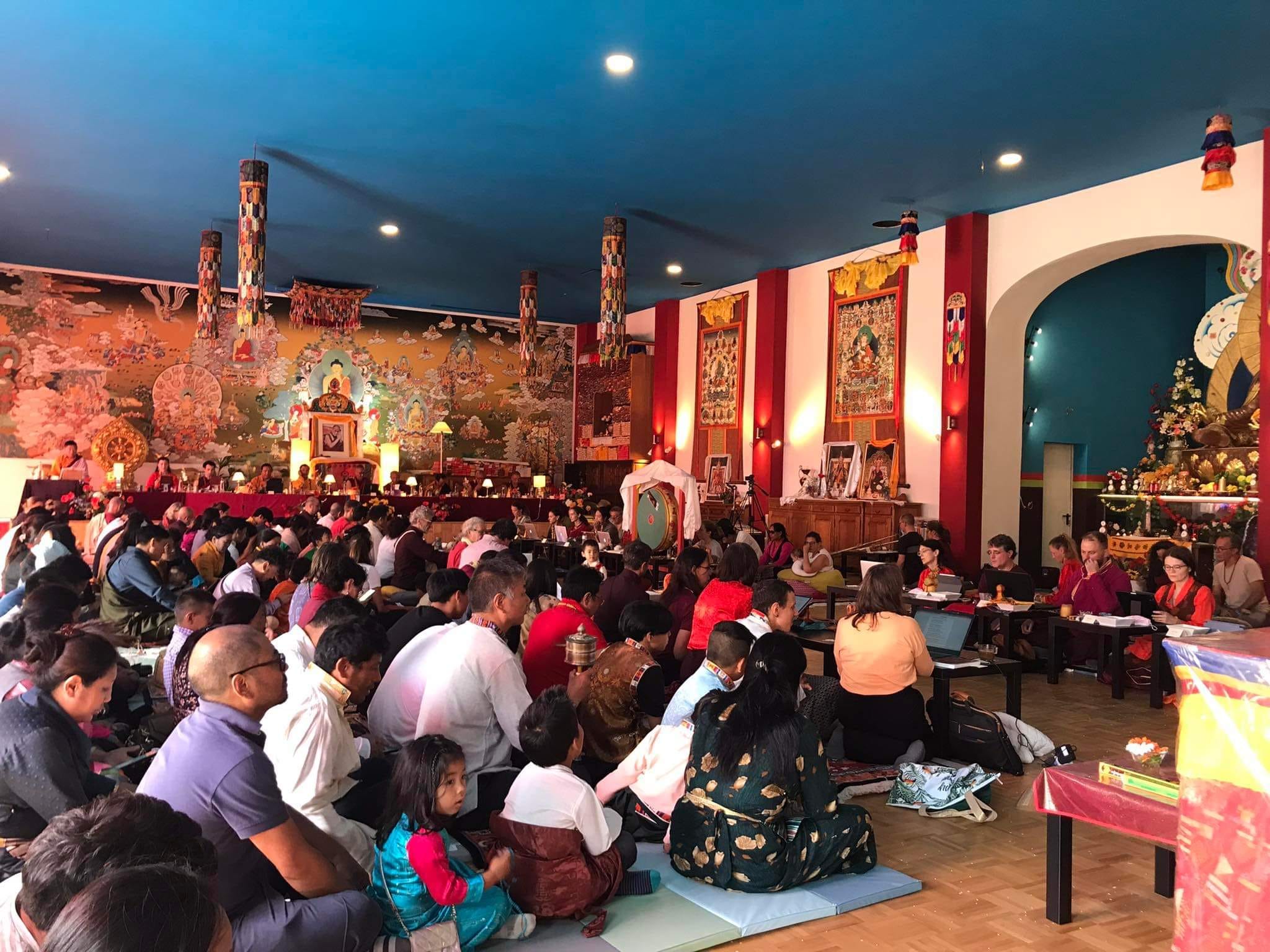
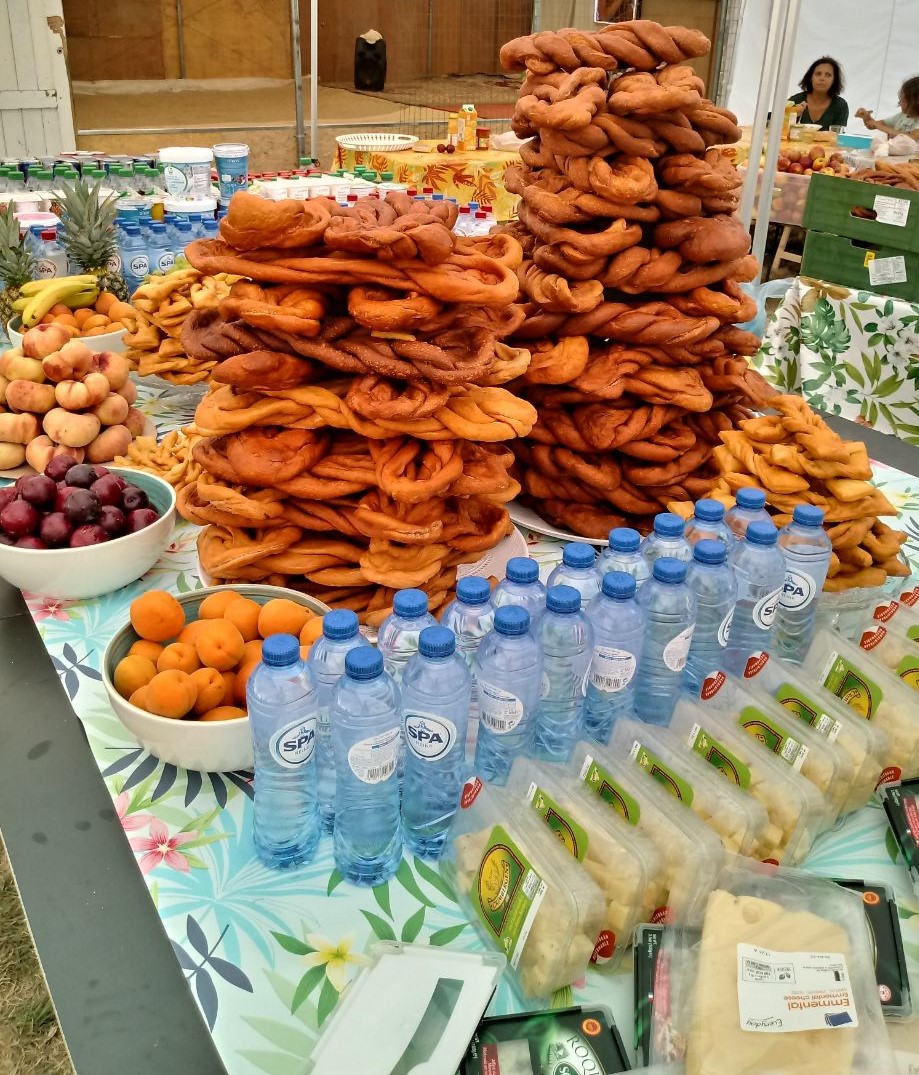
Mönlams are prayers of aspiration to free all sentient beings, to achieve stable peace and to find freedom from all forms of suffering such as wars, epidemy, physical and mental pain.
The term ‘mönlam’ also refers to the tradition of prayer gatherings called ‘mönlam festivals’. Each mönlam festival has its own name, for example the famous ‘Mönlam Chenmo’. This tradition started in India at the time of the Buddha 2500 years ago, and has also been an important part of the Tibetan New Year celebrations for more than 600 years. Over the last few decades, the mönlam tradition has been revived and greatly enriched. Multiple mönlams are held at different times during the year in Tibet, India, Nepal, Bhutan—and recently in the West. The most famous of all modern mönlams take place every winter in Bodhgaya, India, where Buddhists from all different traditions gather in the very place where the Buddha Sakyamuni attained enlightenment.
During a mönlam, participants recite prayers of aspiration and in this way they turn their minds and actions towards benefiting all beings. It is also a time of great joy, due to gathering in meaningful activity, cultivating altruistic mind and also meeting old friends.
The History of the Nangchö Mönlam
by Lopön Jampa Norgyal, 1 October, 2022.
The Praise to the Buddha says:
In the three realms of existence, with your incomparable qualities,
Where there is cruelty, you display great miracles.
Gods, humans and all beings honor you,
To the one who spreads the teachings, I bow down.
In the noble land of India, when the Buddha Shakyamuni was alive, the Tīrthika masters Pūraṇakāśyapa, Maskarīgośalīputra, Sañjayīvairaḍīputra, Ajitakeśakambala, Kakudakātyāyana, Nirgranthojñātiputra and others with their retinue were defeated in the city of Srāvastī by way of debates and display of miracles. This special time of the year became known as the ‘Celebration of Miracles” (usually translated as ‘Festival of Miracles’).
From that day on in India the successive Dharma kings honored and popularised the festival by making prostrations and great offerings.
In Tibet the Great Prayer Festival of Miracles initially developed in this way:
At the time of the Dharma King Songtsen Gampo the teachings of the Buddha were introduced. During the reign of the king Trisong Detsen, the trio — the king, the scholar and the master — met and the teachings of the sutras and tantras could effectively be established.
This festival fell on the 1st to 15th day of the Tibetan calendar. Accordingly, the successive Dharma kings celebrated these holy days by making prostrations and offering in a few locations not connected with a particular school. However, it seems that this tradition did not widespread then.
Later, in 1409, the great protector Lama Tsong Khapa established the Prayer Festival of Miracles in the Jokhang temple in Lhassa. The Tibetans used to call it the “Offerings and Miracles Festival of the Fifteen”.
Among the successive incarnations of the supreme Victorious, it is said that Gyalwa Gendün Gyatso [the second Dalai Lama] presided over the Festival of Miracles. From the time the government house (ganden podrang) was founded, during the life of the Great Supreme Victorious Fifth [Dalai Lama, in 1642] and onwards, the Prayer Festival of Miracles was sponsored by the Tibetan government itself. At that time twenty to thirty thousand monks would gather during the festival.
Later on, it progressively grew and each of the schools —the Sakyas, Geluks, Kagyus and Nyingmas — organised great gatherings in connection with this celebration. During these gatherings, virtuous aspirational prayers (mönlams) were and still are offered in holy places such as the eminent Bodhgaya. They are clearly a great field of accumulation of merits for beings.
The first Nangchö Mönlam —the Buddhist Prayer Festival— took place during three days, from 19 to 21 August 2022, in Dharma City, Patrul Rinpoche’s Dharma centre established in Belgium. The gathering was attended by many women and man, ordained and lay, in a non-sectarian spirit. Food and accommodation was provided free of charge.
The reason for organising the Nangchö Mönlam Festival is to gather Buddhists, especially Tibetans living in Belgium, for prayers and celebration. It is important for Buddhists residing in their countries or abroad, and primarily Tibetans living in Belgium, to pray for all creatures on earth and for all human beings to be in good physical and mental health, also to pacify epidemics, wars, hunger and so on, for rain to fall on time, for agriculture to flourish etc.
Since there are quite a few Tibetans currently living in Belgium, no doubt the number of participants will grow year after year. Thereby one of the objectives of the Mönlam, the long-term benefit for the mental well-being of humanity, will be attained.
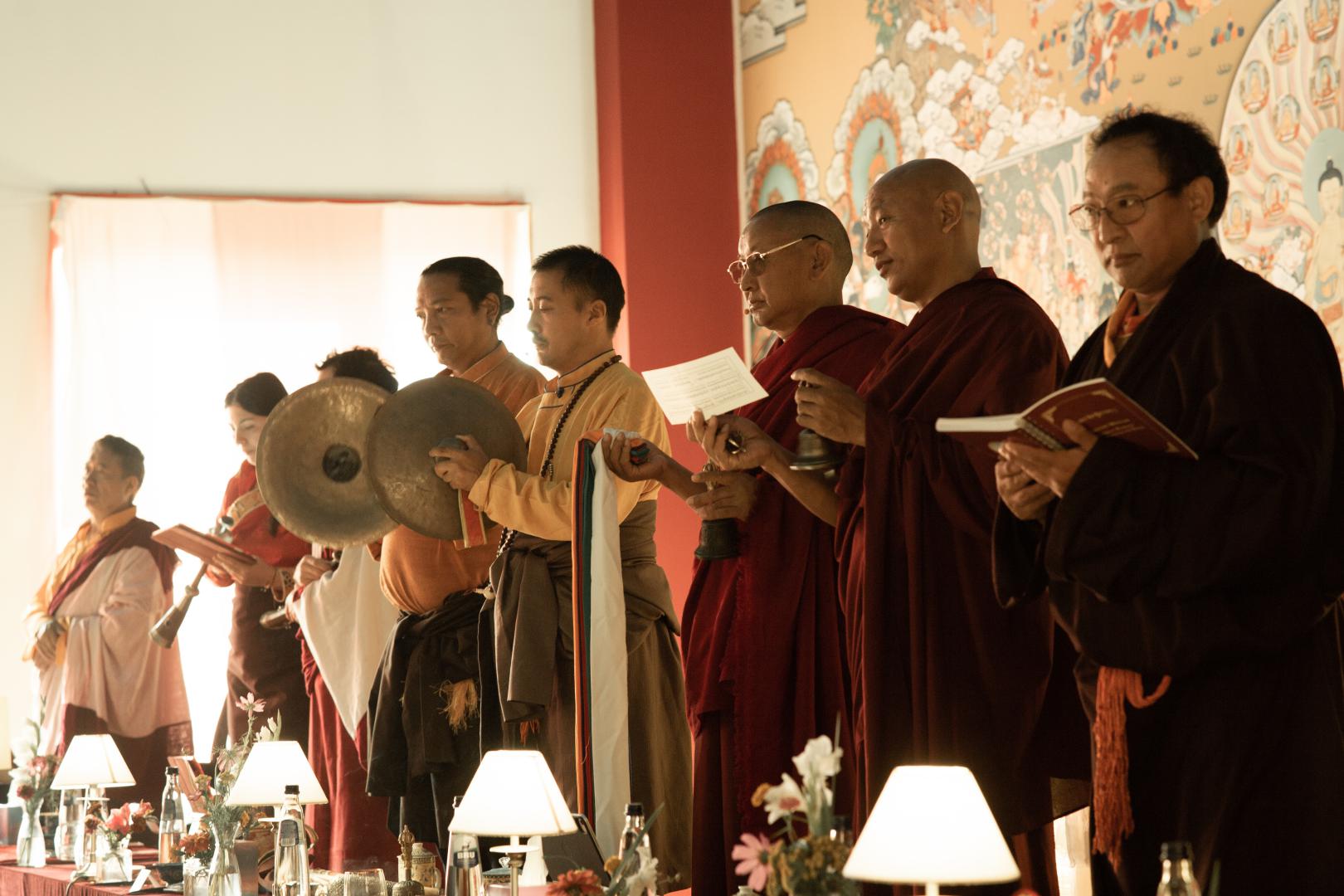
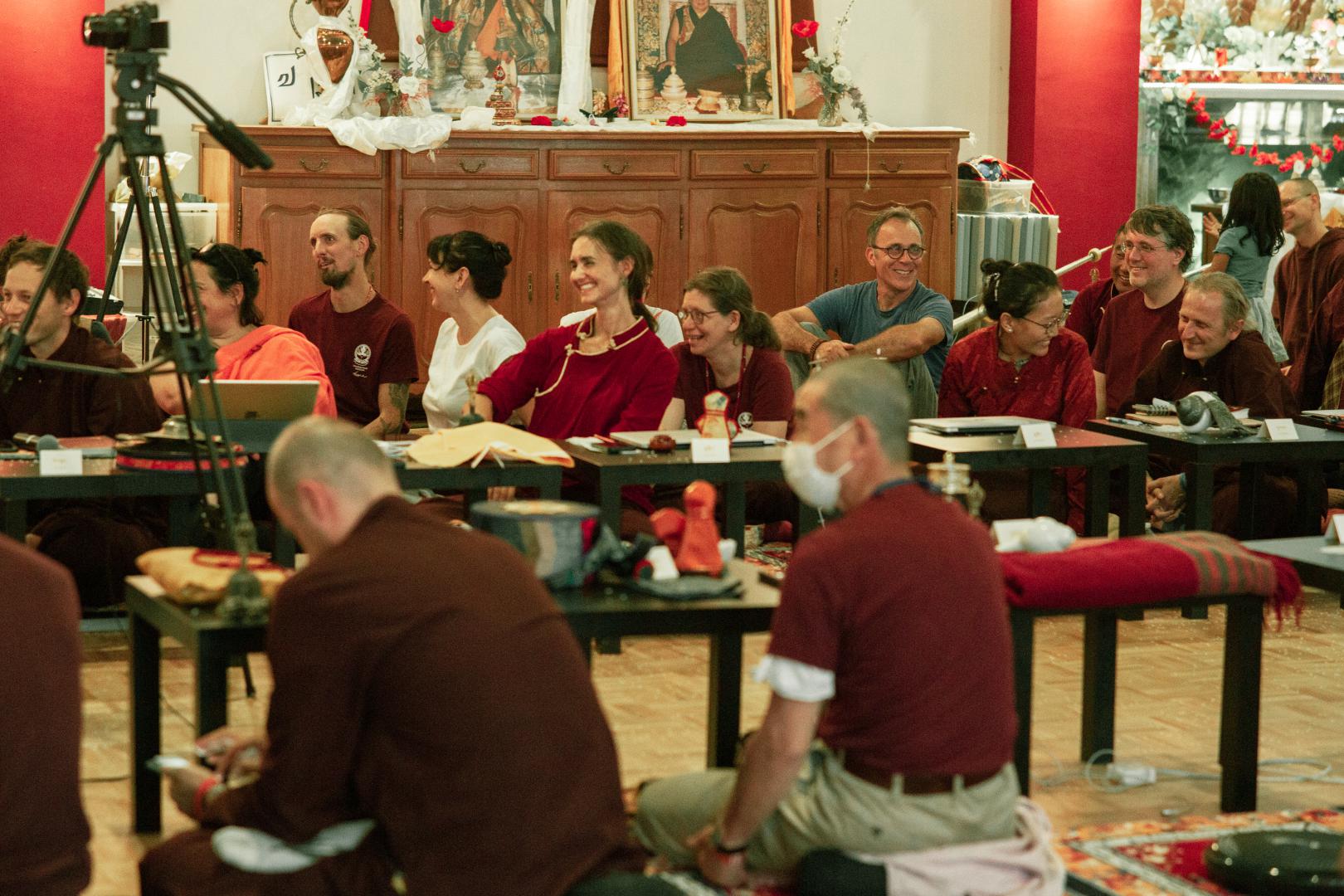
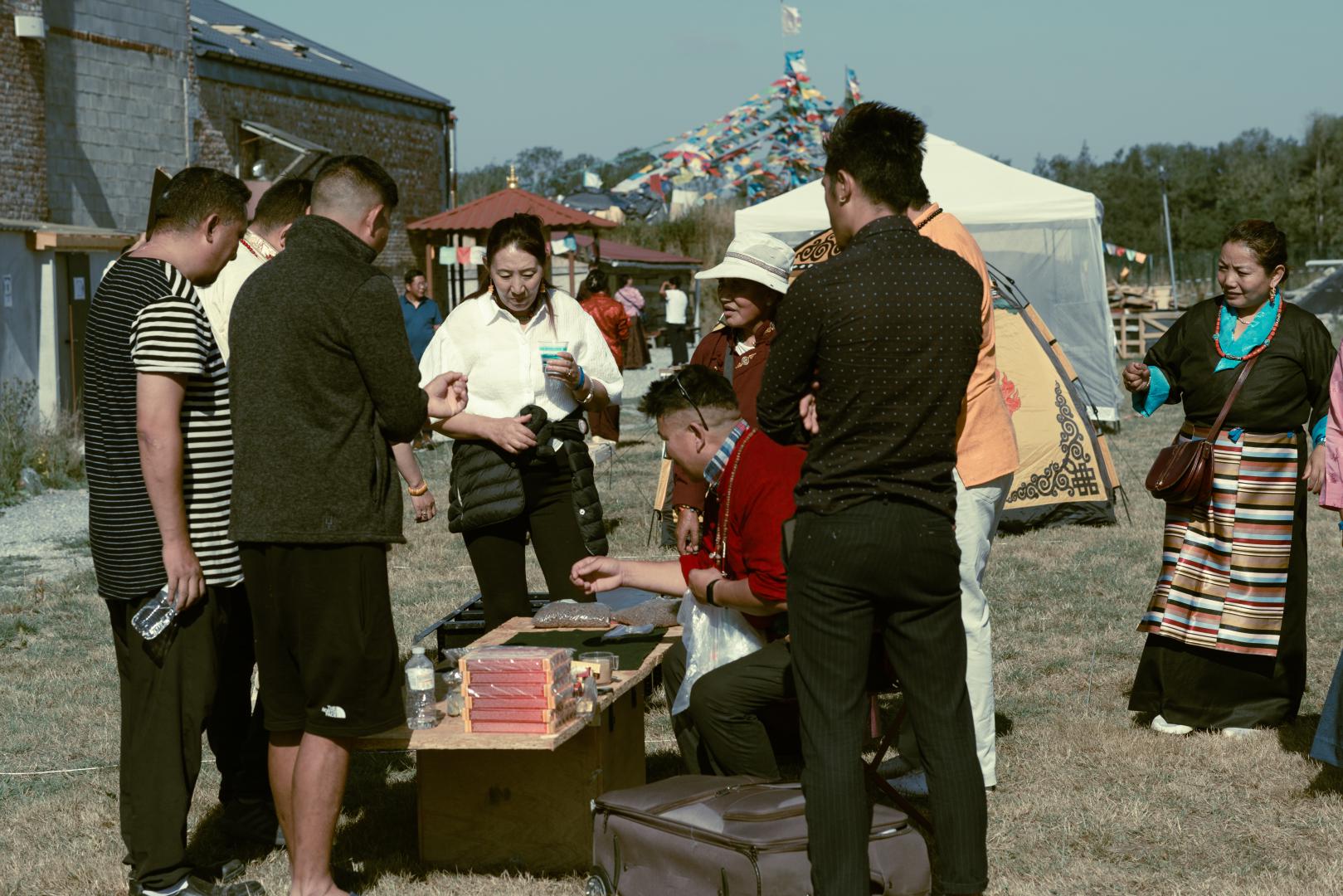
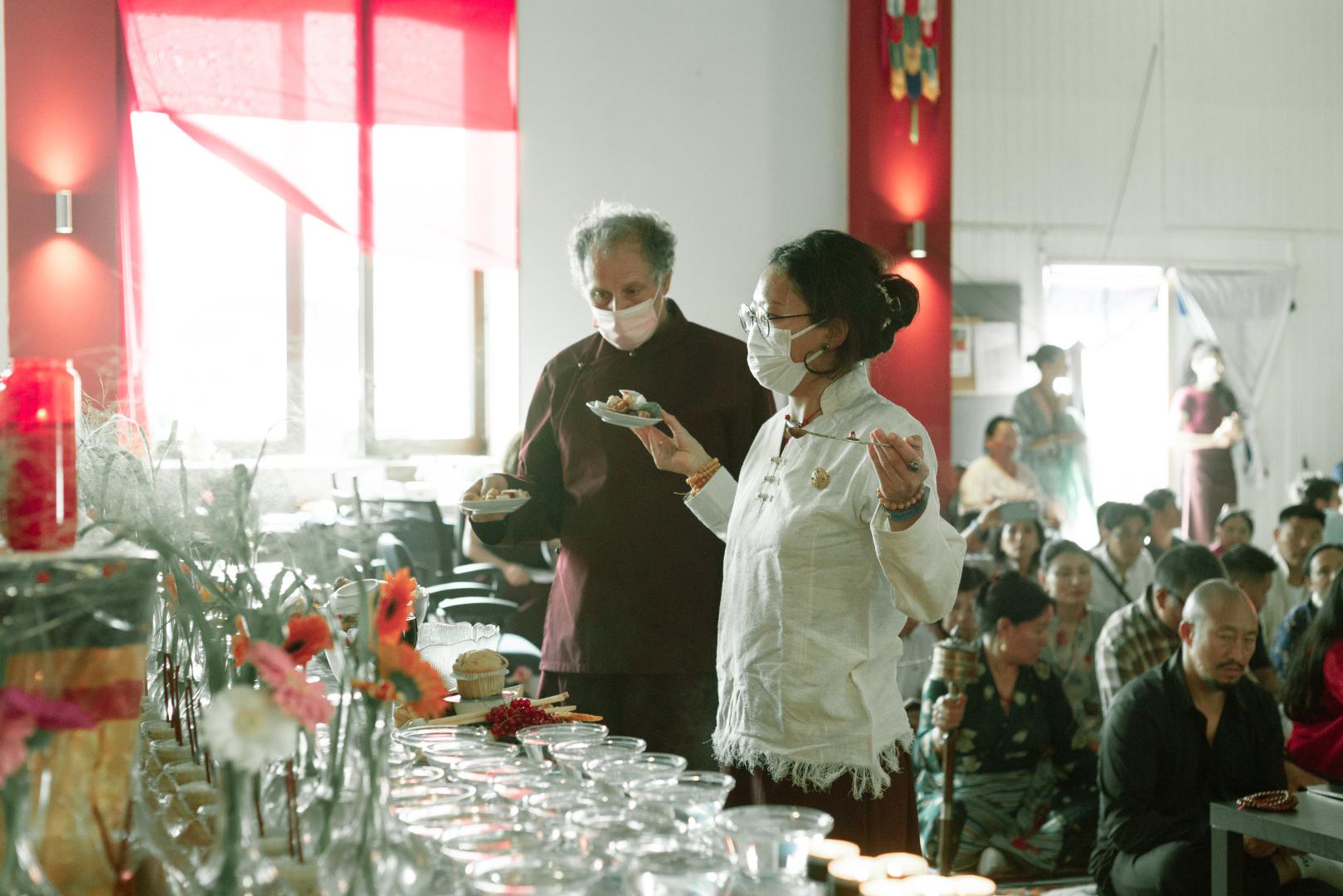

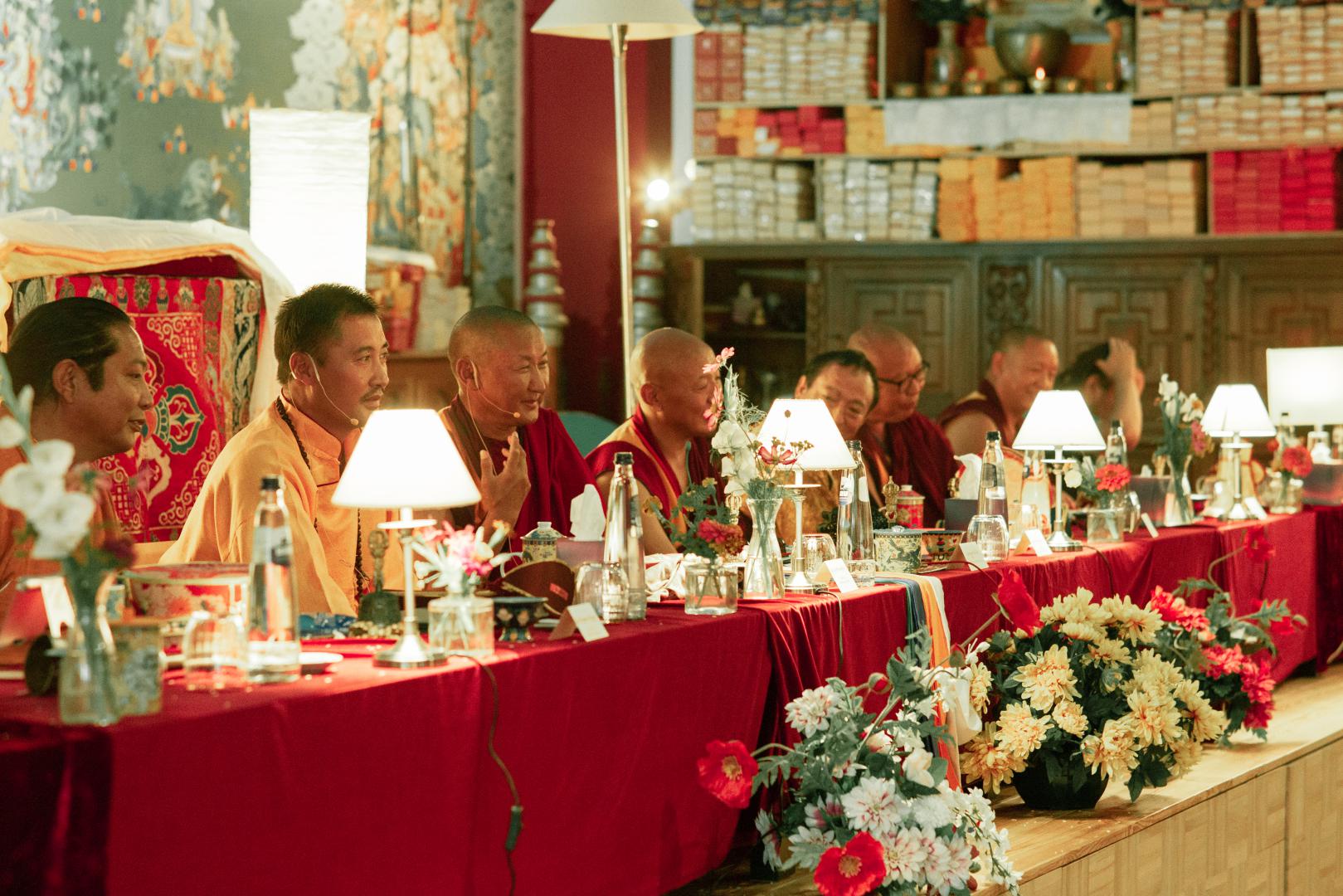
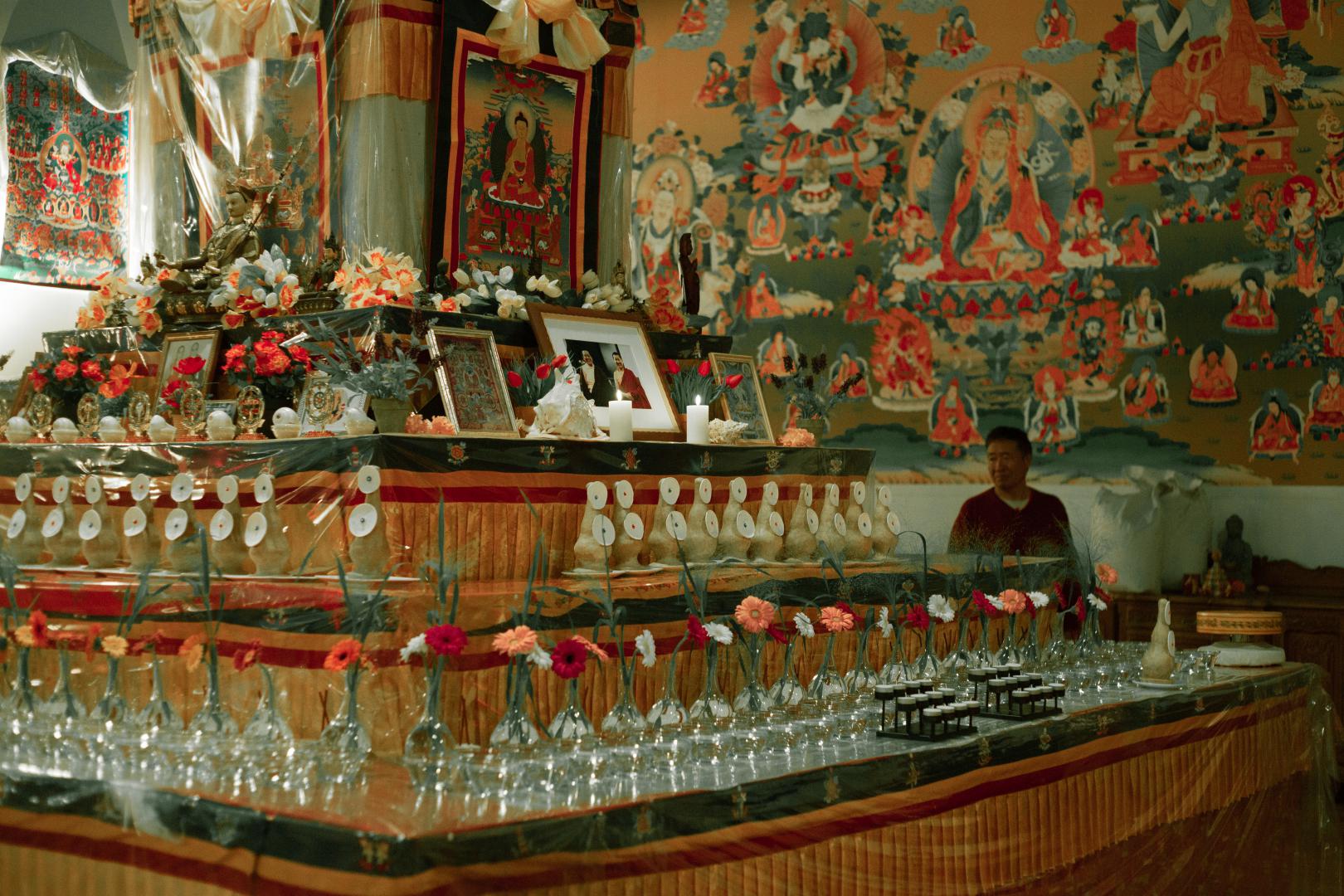
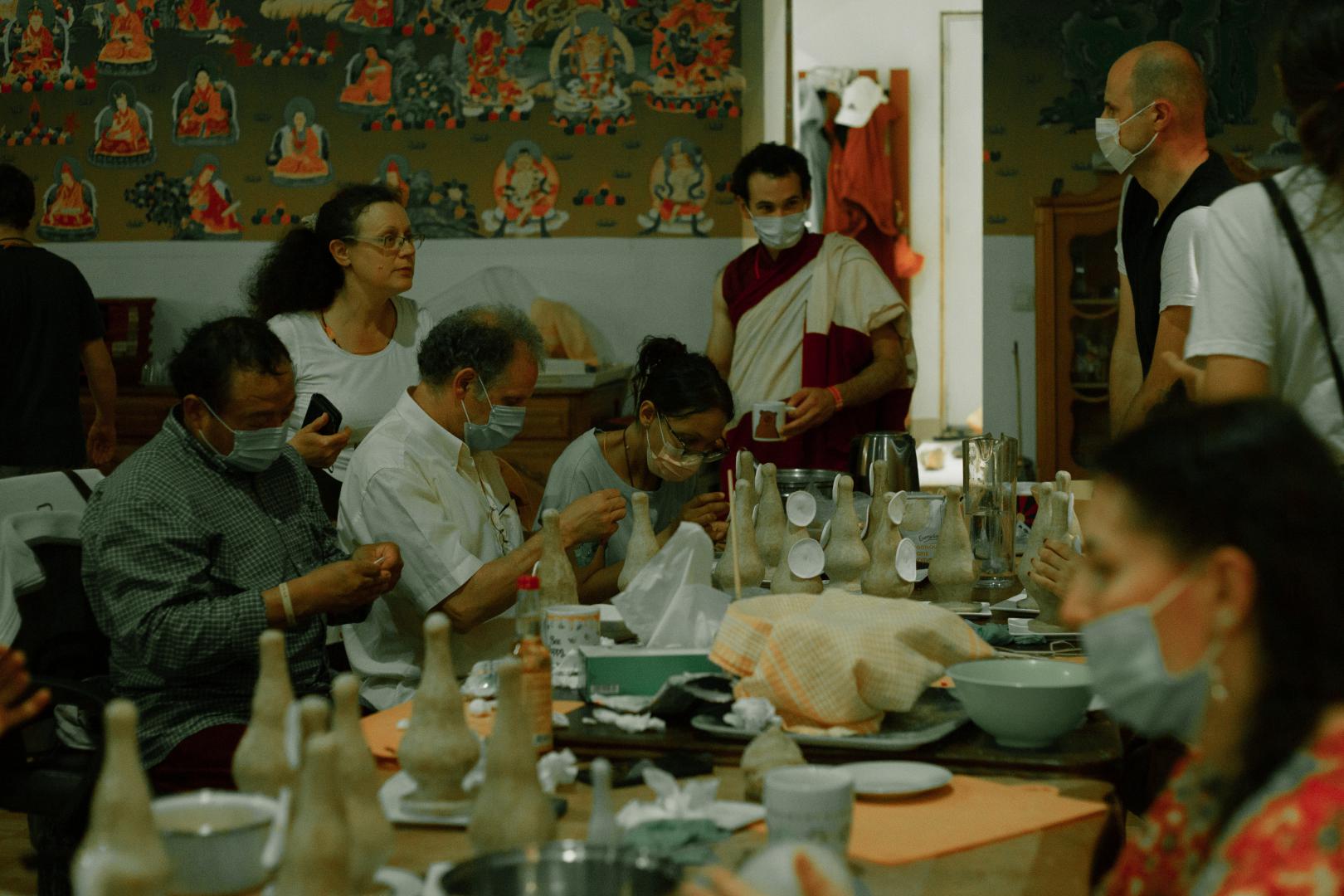
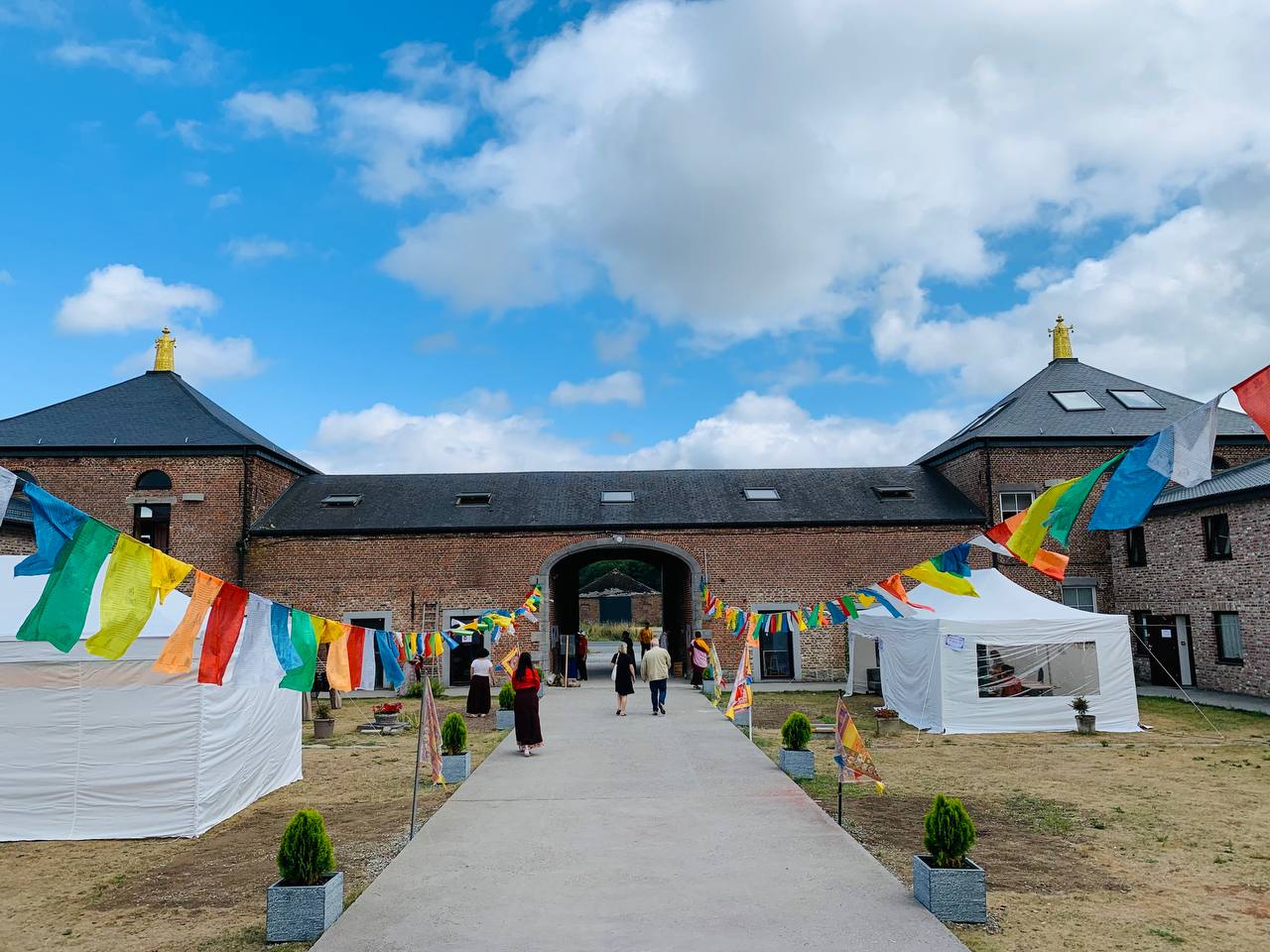
There is so much benefit coming from this gathering and praying for all the universe.
We need it especially now, when there is so much turmoil in this world: when there are wars, pandemic, climate change and lots of natural disasters.
Whoever wants to join, you are very welcome.
Patrul Rinpoche
ནང་ཆོས་སྨོན་ལམ་གྱི་བྱུང་རིམ།
དེ་ཡང་། ཐུབ་པའི་བསྟོད་པ་ལས།
སྲིད་པ་གསུམ་ན་དཔེ་མེད་ཡོན་ཏན་གྱིས།།
གཉན་དུ་ཡོད་པར་ཆོ་འཕྲུལ་ཆེན་པོ་བསྟན།།
ལྷ་མི་འགྲོ་བ་ཀུན་གྱིས་རབ་མཆོད་དེ།།
བསྟན་པ་རྒྱས་པར་མཛད་ལ་ཕྱག་འཚལ་ལོ།།
ཞེས་འབྱུང་བ་ལྟར། རྒྱ་གར་འཕགས་པའི་ཡུལ་དུ་སྟོན་པ་ཤཱཀྱ་ཐུབ་པ་ཞལ་བཞུགས་སྐབས་མཉན་ཡོད་དུ་མུ་སྟེགས་པའི་སྟོན་པ་རྫོགས་བྱེད་དང༌། གནག་ལས་སྐྱེས། རྒྱལ་བ་ཅན། གཉེན་གྱི་བུ། ནོག་ཅན། སྐྲའི་ལ་བ་ཅན་སོགས་འཁོར་དང་བཅས་པ་རྩོད་པ་དང་ཆོ་འཕྲུལ་གྱིས་ཕམ་པར་མཛད་པས་དུས་ཚེས་ཁྱད་པར་ཅན་དེ་ལ་ཆོ་འཕྲུལ་དུས་ཆེན་ཞེས་འབོད། དེ་ནས་བཟུང་རྒྱ་གར་དུ་ཆོས་རྒྱལ་རིམ་བྱོན་རྣམས་ཀྱིས་དུས་ཆེན་འདིར་ཕྱག་དང་མཆོད་འབུལ་རྒྱ་ཆེར་གནང་ནས་དུས་ཆེན་སྲུང་བརྩི་ཞུ་སྲོལ་དར།
བོད་དུ་ཆོ་འཕྲུལ་སྨོན་ལམ་ཆེན་མོ་ཐོག་མར་དར་ཚུལ་ནི། ཆོས་རྒྱལ་སྲོང་བཙན་སྒམ་པོའི་སྐབས་སུ་སངས་རྒྱས་ཀྱི་བསྟན་པའི་སྲོལ་བཏོད། ཆོས་རྒྱལ་ཁྲི་སྲོང་ལྡེ་བཙན་སྐབས་མཁན་སློབ་ཆོས་གསུམ་བོད་དུ་གདན་འཛོམས་ཏེ་མདོ་སྔགས་ཀྱི་བསྟན་པ་དངོས་གཞི་ཚུགས་ཐུབ་པ་བྱུང་བ་ནས། དུས་ཆེན་འདི་ཉིད་བོད་ལུགས་ཀྱི་ཟླ་དང་བོའི་ཚེས་གཅིག་ནས་ཚེས་བཅོ་ལྔའི་བར་འཁེལ་གྱི་ཡོད་པ་ལྟར་ཆོས་རྒྱལ་རིམ་བྱོན་རྣམས་དང་། ཆོས་བརྒྱུད་རིས་མེད་ཀྱི་གདན་ས་ཁག་ཏུ་ཕྱག་དང་མཆོད་འབུལ་གྱིས་དུས་ཆེན་སྲུང་བརྩི་ཞུ་བའི་སྲོལ་ཡོད་ཀྱང་གཅིག་གྱུར་གྱིས་དར་ཁྱབ་ཆེན་པོ་མ་བྱུང་སྙམ།
དེ་ནས་འཇམ་མགོན་བླ་མ་ཙོང་ཁ་པ་ཆེན་པོས་ཕྱི་ལོ་ ༡༤༠༩ ལོར་ལྷ་ལྡན་གཙུག་ལག་ཁང་དུ་ཆོ་འཕྲུལ་སྨོན་ལམ་ཆེན་མོའི་སྲོལ་ཐོག་མར་གསར་འཛུགས་མཛད། དེ་ལ་བོད་མི་རྣམས་ཀྱིས་བཅོ་ལྔའི་མཆོད་པ་དང་ཆོ་འཕྲུལ་དུས་ཆེན་ཞེས་འབོད། རྒྱལ་མཆོག་སྐུ་ཕྲེང་རིམ་བྱོན་ནང་ནས་༸རྒྱལ་བ་དགེ་འདུན་རྒྱ་མཚོས་ཆོ་འཕྲུལ་སྨོན་ལམ་ཐོག་དབུ་བཞུགས་མཛད་པའི་ལོ་རྒྱུས་དང་། ༸རྒྱལ་མཆོག་སྐུ་ཕྲེང་ལྔ་པ་ཆེན་པོའི་སྐབས་དགའ་ལྡན་ཕོ་བྲང་དབུ་བརྙེས་པ་ནས་བཟུང་ཆོ་འཕྲུལ་སྨོན་ལམ་གྱི་སྦྱིན་བདག་བོད་གཞུང་རང་ནས་གནང་ཡོད། སྐབས་དེར་དགེ་འདུན་ཞལ་གྲངས་ཁྲི་གཉིས་ནས་གསུམ་བར་འཛོམས་ནས་སྨོན་ལམ་འཚོགས་ཀྱི་ཡོད།
རྗེས་སོར་རིམ་པས་དར་ཁྱབ་ཀྱིས་ས་དགེ་བཀའ་རྙིང་སོ་སོས་དུས་ཁྱད་པར་ཅན་འདི་དང་བསྟུན་གནས་མཆོག་རྡོར་གདན་ལྟ་བུའི་གནས་ཁྱད་པར་ཅན་རྣམས་སུ་འདུས་མང་མཉམ་འཛོམས་ཀྱིས་དགེ་སྨོན་གནང་ནས་འགྲོ་བའི་བསོད་ནམས་ཀྱི་ཞིང་ས་བླ་ན་མེད་པ་མཐོང་ཆོས་ལྟར་ལགས་ཤིང་།
བྷེལ་ཇམ་རྟེན་གཞི་བྱས་པའི་ར་ཉག་དཔལ་སྤྲུལ་པའི་ཆོས་ཚོགས་འོག་མིན་ཆོས་ཀྱི་གྲོང་ཁྱེར་དུ། ཕྱི་ལོ་༢༠༢༢ ལོའི་ཚེས་༡༩ ནས་ཉིན་གསུམ་རིང་ནང་ཆོས་སྨོན་ལམ་འཚོག་ཆེད་སེར་སྐྱ་ཕོ་མོ་དབྱེར་མེད་དང་། ཆོས་བརྒྱུད་རིས་མེད་ཐོག་ཞལ་ལག །བཞུགས་གནས་སོགས་རིན་མེད་འབུལ་ཐབས་ཀྱིས་འཚོགས་གནང་ཡོད། ནང་ཆོས་སྨོན་ལམ་འཚོགས་དགོས་པའི་དམིགས་ཡུལ་ཡང་འདི་གར་བྷེལ་ཇམ་དུ་བོད་རིགས་གཙོ་བོར་གྱུར་པའི་ཕྱི་ནང་ཡུལ་གྲུ་ཁག་གི་ནང་པ་རྣམས་ནས། ནད་ཡམས་དང་། དམགས་འཁྲུགས། མུ་གེ་སོགས་ཞི་ཞིང་། ཆར་ཆུ་དུས་བབ། ལོ་ཕྱུག་རྟག་ལེགས། གོ་ལའི་ཁྱོན་ཡོངས་ཀྱི་འགྲོ་བ་མིའི་རིགས་མཐའ་དག་ལུས་བདེ་ཞིང་སེམས་སྐྱིད་ཀྱི་ངང་ནས་འཛམ་གླིང་ཞི་བདེ་ཡོང་བའི་སྨོན་ལམ་འདེབས་དགོས་པ་གལ་ཆེ་བ་དང་། རྒྱལ་ཁབ་འདིའི་ནང་བོད་རིགས་ཀྱང་མི་ཉུང་བ་གནས་སྡོད་བྱེད་མུས་ལྟར། ལས་མེད་ལོ་རྒན་ཇེ་མང་ལ་འགྲོ་རྒྱུར་སྨོས་མེད་ཀྱི་གནས་ཚུལ་ལས་ལོ་ལྟར་ནང་ཆོས་སྨོན་ལམ་ལ་ཕེབས་འདུན་ཡོད་རིགས་ཀྱང་ཇེ་མང་གིས་མིའི་རིགས་ཀྱི་སེམས་ཁམས་ལ་ཕུགས་ཕན་ལྡན་པའི་དགེ་མཚན་ཡོང་ཆེད་སོགས་ལ་དམིགས་པ་ཡིན།
༢༠༢༢/ ༡༠/ ༡/ ཉིན།
About monlam 2022
